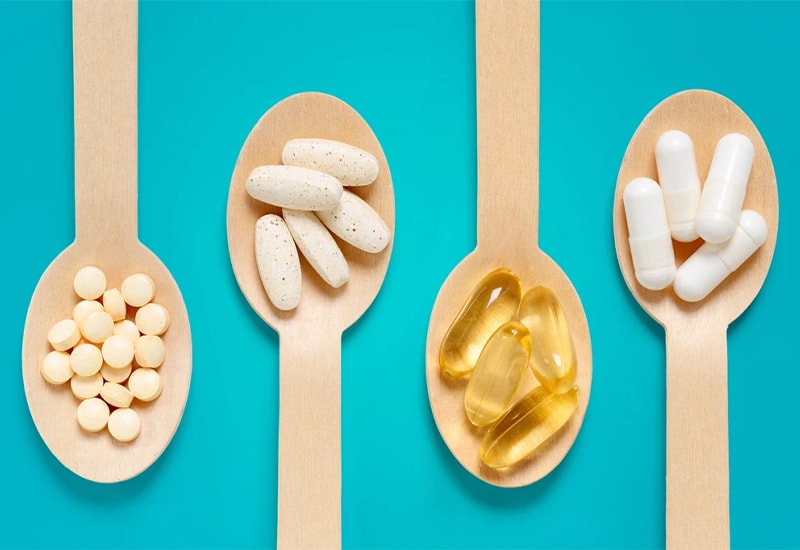Solutions For PMS Symptoms
Loretta Pride • Updated on June 21, 2023
Premenstrual syndrome is a condition that a lot of women in their menstruating age experience. It is the emotional and physical change that happens a week or two before the next period starts. PMS symptoms are characterized by mood swings, cramps, food cravings and aversions, anxiety, depression, sleeping problems, and head and backaches, among others.
As this has become a very recurring issue to women, many companies have started to manufacture products that reduce the severity of the symptoms of PMS and, in rare cases, cure these symptoms. These supplements have proven to be effective in some cases. It is advisable to consult your doctor before trying any supplements to avoid taking supplements that are not good for your health.

Supplements that help with PMS
Magnesium
Women who have symptoms such as breast tenderness, bloating, and fluid retention can counter them by taking about 360mg of magnesium daily. This has been effective in some cases, but not in all. Magnesium supplements affect different women differently, as seen in a study where the supplement worked for some women and not for others. The supplement has some side effects such as stomach upsets and diarrhea; which is why it is advisable to talk to your doctor before deciding if the supplement is compatible with your body.
Calcium
It has been proven that calcium helps weather the symptoms associated with PMS. In a study conducted, women taking 500 mg of calcium carbonate twice a day for three months experienced less fatigue, depression, and fewer changes in appetite compared to women who lack calcium supplements. In another study, it was found that women who have a high intake of calcium and Vitamin D have a lower probability of having PMS and the symptoms associated with it. Calcium and vitamin D affects hormones, which cause PMS.
Ginkgo Biloba
There are shreds of evidence that suggest that ginkgo is effective in alleviating some symptoms associated with PMS. In a study conducted, women who too 40mg leaf extract tablets thrice a day for some days in two menstrual cycles experienced reduced symptoms of PMS compared to those who didn’t. More research, however, needs to be done to back up the efficiency of ginkgo in managing PMS symptoms.
Chasteberry
The chaste berry has been used as a supplement to reduce the physical symptoms associated with PMS. Such symptoms as breast tenderness, fluid retention, irritability, depression, and mood swings are manageable using the chaste berry fruit. In a study conducted, women who took a tablet of chaste berry over several cycles experienced an improvement of their PMS symptoms. Women who took chaste berry for three cycles consecutively experienced less bloating and breast tenderness. It is not definite if the chaste berry supplement is safe for consumption as the Food and Drug Administration does not regulate herbal remedies. Still, the supplement is considered generally safe by the American Academy of Family Physicians.
St. John’s Wort
This supplement is often used for the treatment of depression, both mild and moderate. Some studies suggest that this supplement, also known as Hypericum perforatum L is effective for the treatment of PMS related symptoms such as anxiety and depression, food cravings, and aversions. It is advisable to consult your doctor before taking this supplement as it can cause severe interactions with other herbs, prescription drugs, and supplements.
Evening Primrose Oil
This is an herbal supplement that some claim is effective for the management of PMS related symptoms. There is, however, no enough evidence to support this argument as the EPO leads to some side effects such as the increased risk of bleeding and low blood pressure. The EPO supplement is considered safe for use as directed for up to one year, which is broken down into does of 500 to 6000mg one to four times daily for 10 to 12 months.
Essential fatty acids
These supplements are vital for several health reasons. Essential fatty acids (EFA) have been found to prevent heart disease, depression, and also abnormalities in organs. According to a study conducted, EFA can help treat symptoms associated with PMS. Women who took a combination of vitamin E and EFAs experienced a significant improvement in PMS related symptoms after 3 to 6 months of using these supplements. The supplement also didn’t have any significant side effects on these women as compared to other supplements.
Other forms of treatment
Most women experience severe PMS symptoms as a result of their lifestyle. The success of the treatment of PMS varies with different women and the medication used. Some of the most commonly prescribed medications for the treatment of PMS are;
Antidepressants
Antidepressants such as fluoxetine, sertraline and paroxetine have been very successful in managing mood symptoms during PMS. These medications can be taken on a daily basis, but in some women, the use may be limited to two weeks before the start of the menstrual period.
Hormonal contraceptives
Hormonal contraceptives are a prescription popular for stopping ovulation, which in turn brings about relief from symptoms associated with PMS.
Diuretics
Diuretics are generally water pills that help in the shedding of excess fluids from the body via the kidney. Women who have trouble with weight gain, bloating, and swelling during PMS as a result of the salt intake can use diuretics such as Spironolactone.
Women take nonsteroidal anti-inflammatory drugs; these drugs before or at the onset of their menstrual period. They include ibuprofen and naproxen sodium, and they are crucial in easing of cramps and other PMS symptoms.

Home remedies for managing PMS
As stated earlier, lifestyle choices have a very significant impact on the PMS symptoms and their severity. Women are advised to modify their diets to eat smaller and more frequent meals to reduce bloating. It is also advisable to limit the intake of salts and salty foods for fluid retention. Foods that are rich in calcium and calcium supplements are also suitable for PMS management. It is also advisable to avoid alcohol and caffeine, especially during the menstrual period.
Exercise is also important for management of PMS symptoms as it helps improve the quality of sleep, which helps in avoiding depression and fatigue. Women with PMS are advised to get enough sleep, and practice progressive muscle relaxation, which helps in reduction of headaches, insomnia, and anxiety.
